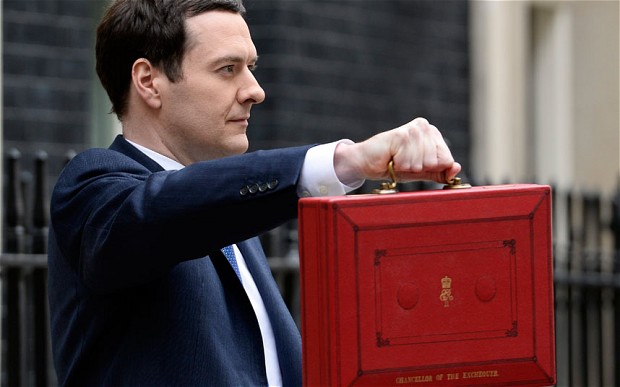10p tax: how it could put £760 a 12 months in savers’ pockets
We explain how to benefit from a new perk announced in the Price range which could place an further £760 a year in savers’ pockets 
Photograph: EPA
A new tax break announced in the Budget could place an additional £760 a yr in savers’ pockets – but only if they reclaim the funds from the taxman.
The Chancellor said he would introduce a special tax-exempt band of cash flow just for savers. At the moment, savers with modest incomes from other sources can benefit from a 10pc tax band, but millions fail to claim, needlessly having to pay much more tax than they need to.
This is partly simply because the tax break is tough to comprehend. As opposed to the private allowance, the 10pc charge applies only to savings cash flow, and is not accessible at all if you have a good cash flow from other sources. An additional dilemma is the require to full a declare form rather than having the correct tax deducted instantly.
Right here we make clear in a lot more detail how the new tax band will operate and how to guarantee that you do not miss out. We also detail how you can claim up to 4 years’ worth of overpaid tax if you previously failed to benefit from the 10pc rate.
The present tax breaks for savers
Thanks to a tiny-recognized perk, some savers can previously pay out a reduced rate of tax on a portion of their income from cost savings. The first £2,790 in savings curiosity is taxed at a reduced fee of 10pc, in contrast with the typical standard price of 20pc utilized to any financial savings income above this level.
The tax break applies only to individuals with modest incomes. To advantage from the complete £2,790 10pc band, your income from other sources, this kind of as salary, pensions or rent, can’t exceed the personalized allowance, at the moment £9,440 but growing to £10,000 with the new tax year on April six.
When your other revenue rises over this level the 10pc tax band gets progressively smaller sized right up until, when your complete income from other sources reaches £12,230 (£9,440 plus £2,790), it disappears altogether.
Frustratingly for these savers eligible for the tax break, you can not have the right tax deducted at supply by your financial institution or creating society (though any person who is entitled to have interest paid completely tax-totally free can get it gross by submitting HMRC kind R85 to their financial institution).
As an alternative, savers have to fill in one particular of two kinds each 12 months if they want to claim the lowered price of tax.
As a result, millions of folks fail to benefit from the tax break. According to HM Income & Customs, only 15pc of taxpayers eligible for the 10pc cost savings fee actually consider benefit of it.
“The variety of taxpayers in 2011‑12 with cost savings income in the 10pc band is estimated to have been close to 3.6 million,” a spokesman stated. “Of these, all around 540,000 [15pc] claimed back the variation between tax on interest deducted at supply and tax liable at the 10pc starting charge.”
Interest on cost savings held in Isas is automatically tax-cost-free and can be disregarded when you determine how a lot of your financial savings earnings is eligible for the 10pc charge.
The new tax break
From April next 12 months, the special price of tax on financial savings will be minimize from 10pc to zero and the band of income to which it applies will rise to £5,000. So, offered that your other earnings is modest, the first £5,000 of financial savings earnings can be tax-totally free.
Again, the tax break applies in full only if your earnings from other sources does not exceed the individual allowance. It will be withdrawn steadily till, when your other earnings reaches £5,000 much more than the private allowance, you will not advantage at all.
How much you can save
You can conserve as a lot as £762 a 12 months from the new 0pc fee on savings. This figure applies to an individual who has £5,000 of savings income on best of £10,500 from other sources.
In the tax 12 months that begins up coming month, just before the alterations get impact, this saver will face a complete income tax bill of £862, according to Suzy Levett of Grant Thornton (pictured), the accountancy firm. But in the following tax year, right after the 0pc band comes in, the tax bill will fall to zero.
The calculation is complicated by the truth that the individual allowance is distinct for the two years, but Ms Levett stated £762 of the tax saving was down to the 0pc fee and just £100 resulted from the rise in the personalized allowance.
However, any extra income from other sources will erode the new tax-totally free band. Envision that you had pension revenue of £12,500 and financial savings income of £5,000.
Next tax year, just before the new 0pc band comes in, your complete tax bill would be £1,462, Ms Levett calculated. In the following year, soon after the tax-cost-free band will take result, you would shell out £800 in tax, a conserving of £662.
How to benefit from the new tax break
The new 0pc tax break is not just far more generous than the earlier perk, it will also be simpler to claim.
Anybody who understands that all their interest from a specific bank or building society will not be subject to tax can inquire to have it paid gross by filling in kind R85. This was not attainable when the preferential price on financial savings was 10pc due to the fact banking institutions had no implies of making a partial deduction.
Alternatively, you will even now be able to reclaim overpaid tax by submitting form R40 to HMRC or by filing a self-assessment tax return.
How to claim overpaid tax from earlier years
Since you are allowed to reclaim overpaid tax dating back 4 years, savers who are eligible for the 10pc rate but failed to claim it could be entitled to up to £976 for the many years from April six 2009 to April 5 2013.
If you apply by April 5 this year, that is a maximum of £271 for the 2012-13 tax yr, £256 for 2011-12, £244 for 2010-11 and £244 for 2009-10. Then, from April six, you’ll be capable to declare £279 for the 2013-14 tax yr. This offers a total of £1,294.
You will need kind R40 from HMRC – one for every single 12 months for which you want to declare. You can get the type by downloading it from hmrc.gov.uk/kinds/r40.pdf or by calling HMRC on 0300 200 3300 .
